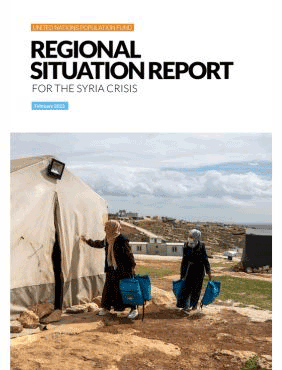You are here
UN to hold panel discussion on pandemic impact on fertility
By Maria Weldali - Jul 11,2021 - Last updated at Jul 11,2021
AMMAN — This year’s World Population Day, annually marked on July 11, will be celebrated under the theme “Rights and Choices are the Answer: Whether baby boom or bust, the solution to shifting fertility rates lies in prioritising all people’s reproductive health and rights.”
The day, first marked in 1990, brings attention to important and urgent population issues, such as fertility rates, population development and people’s relation to the environment, according to the UN website.
To celebrate the day this year, UN DESA’s Population Division and the United Nations Population Fund (UNFPA) will organise a virtual panel discussion on July 14 with leading demographers and population experts. The panel will discuss the impact of the pandemic on “fertility preferences and behaviours, the availability and use of family planning, teenage marriage and challenges of data collection,” according to the UN website.
“The pandemic has compromised healthcare systems particularly in the area of sexual and reproductive health. It also exacerbated gender-based inequities,” the UN website said.
The current population in Jordan is 10,940,361, based on the Department of Statistics (DoS).
The 2017-2018 Jordan Population and Family Health Survey (JPFHS), conducted and published by the DoS, found that “52 per cent of married women in Jordan use a method of family planning, of whom 37 per cent use modern contraceptive methods and 14 per cent use traditional methods”.
The survey assisted policy makers in the designing strategies to improve the health of the Kingdom’s population.
People between the ages of 15 and 64 account for 63.9 per cent of the population, people between ages 10 and 24 represent 30.5 per cent, and people under 14 account for 32.1 per cent, according to the UNFPA website.
Between 2015 and 2020, the average annual rate of population change has been 1.9 per cent, the website added, pointing out that “the total fertility rate per woman in Jordan stands at 2.6 per cent in 2021”.
The global population currently stands at 7.7 billion and is expected to grow to around 8.5 billion in 2030 and 9.7 billion in 2050, according to the UN.
Related Articles
AMMAN — Shorter time span for childbearing, urbanised way of living, people’s nutritional approaches and cultural shifts are among the facto
AMMAN — Jordan marks the World Population Day on Wednesday, which is held this year under the theme “Family Planning is a Human Right”, a Si
AMMAN — The humanitarian needs of Syrians and neighbouring host communities are currently at their highest, according to the most recent Uni

















